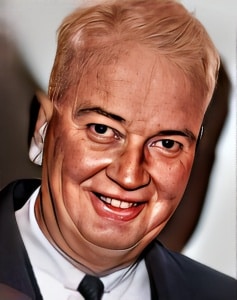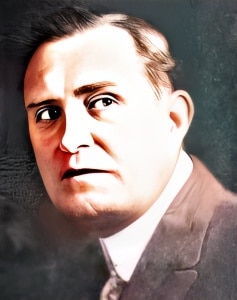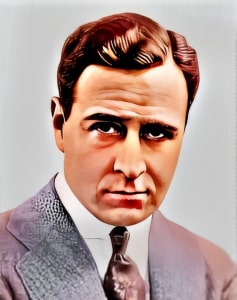 Gustav von Wangenheim (1895-1975) was a German actor and director who made significant contributions to the world of cinema during the early 20th century.
Gustav von Wangenheim (1895-1975) was a German actor and director who made significant contributions to the world of cinema during the early 20th century.
He is best known for his roles in German Expressionist cinema, particularly his portrayal of Hutter in F.W. Murnau’s iconic 1922 silent horror film “ Nosferatu.” Wangenheim’s involvement in this film and other cinematic works solidified his place in film history.
Gustav von Wangenheim was born on February 18, 1895, in Wiesbaden, Germany. He began his acting career in the theater and made a name for himself as a stage actor in Germany. His early theater work laid the foundation for his transition to the world of cinema.
In 1922, Wangenheim starred as Hutter in F.W. Murnau’s “ Nosferatu.” The film, based on Bram Stoker’s novel “Dracula,” had to change character names and some plot elements due to copyright issues but retained the essence of the story. Wangenheim’s role as Hutter, a real estate agent who encounters the vampire Count Orlok, added depth to the film’s narrative.
“ Nosferatu” is considered a landmark in cinema history and a classic of the horror genre. It is known for its expressionistic style, characterized by its use of shadows, distorted sets, and haunting atmosphere. Wangenheim’s performance, alongside Max Schreck’s iconic portrayal of Count Orlok, contributed to the film’s enduring legacy.
After “ Nosferatu,” Gustav von Wangenheim continued to work in German cinema, appearing in various films throughout the 1920s and early 1930s. He was often cast in roles that suited his distinctive appearance and acting style, and he became recognized for his talent as a character actor.
As the transition from silent films to sound films took place in the late 1920s and early 1930s, Wangenheim adapted to the new medium. His distinctive voice allowed him to continue his career in sound films, and he appeared in a variety of roles in early sound cinema.
Wangenheim’s career extended into the 1930s and 1940s, and he continued to work in the German film industry. His contributions to cinema were significant, and he was respected for his ability to add depth and authenticity to the characters he portrayed. His versatility as an actor allowed him to take on a wide array of roles in both silent and sound films.
Gustav von Wangenheim’s involvement in the film industry extended beyond acting. He later delved into directing and made his directorial debut with the 1935 film “Moral.” He continued to direct and act in various films throughout his career, demonstrating his passion for both sides of filmmaking.
While Wangenheim may not have achieved the international recognition of some of his contemporaries, his contributions to the world of cinema were significant. His work in “ Nosferatu” and other films allowed him to leave a lasting mark on the history of German cinema, particularly in the Expressionist and horror genres.
Gustav von Wangenheim’s unique style and talent as an actor and director, combined with his versatility, made him an important figure in early German cinema. His legacy endures through his cinematic contributions, adding depth and authenticity to the characters he portrayed and showcasing the power of silent and sound film in capturing the imagination of audiences.
Loading live eBay listings...




